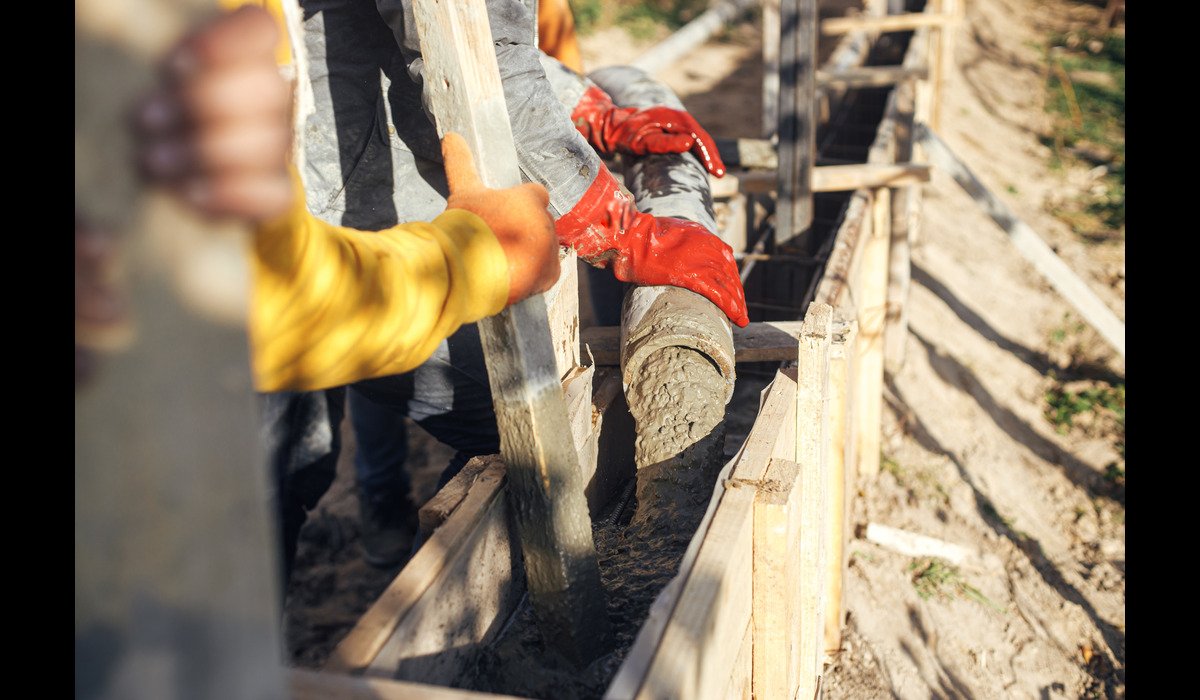Introduction
When constructing a commercial building, foundation and framing play a crucial role in ensuring safety, durability, and efficiency. Unlike residential structures, commercial buildings often require reinforced materials, precise engineering, and specialized construction techniques to support larger loads, higher traffic, and long-term use. In this article, we’ll explore why commercial buildings need specialized framing and foundation work and what factors impact their design and construction.
1. The Role of Foundations in Commercial Construction
A strong foundation provides the stability required for multi-story office buildings, warehouses, retail centers, and industrial facilities. Unlike residential homes, which typically rely on slab-on-grade or pier & beam foundations, commercial buildings require heavily reinforced foundations to accommodate heavier loads and prevent structural failure.
Common Foundation Types for Commercial Buildings:
- Reinforced Concrete Slabs – Used for warehouses, retail centers, and factories to withstand heavy equipment and foot traffic.
- Deep Foundations (Piles & Piers) – Necessary for skyscrapers, large office buildings, and unstable soil conditions.
- Mat Foundations (Raft Foundations) – Used when structures require a large, uniform load distribution to prevent settlement.
Why Commercial Foundations Must Be Different:
✅ Higher Load-Bearing Capacity – Must support large-scale machinery, multi-floor structures, and increased foot traffic. ✅ Durability & Longevity – Designed to last for decades with minimal maintenance. ✅ Moisture & Soil Stability Considerations – Built to withstand environmental changes that could compromise stability.
2. The Importance of Structural Framing in Commercial Buildings
While a solid foundation keeps the building stable, structural framing determines the overall strength, shape, and integrity of the structure. Commercial buildings require advanced framing techniques to accommodate large spans, open floor plans, and high ceilings.
Types of Framing Used in Commercial Construction:
- Steel Framing – Most common for skyscrapers, office buildings, and industrial facilities due to its strength and fire resistance.
- Concrete Framing – Used for parking garages, hospitals, and government buildings for added durability.
- Wood Framing – Still used in low-rise commercial structures, such as small office spaces and retail shops.
Why Commercial Framing Must Be Different:
✅ Fire Resistance – Commercial buildings often require non-combustible materials like steel and concrete for safety compliance. ✅ Wind & Seismic Load Resistance – High-rise buildings must withstand extreme weather and earthquakes. ✅ Efficient Space Utilization – Open floor plans in commercial buildings need specialized framing solutions for wide spans without load-bearing walls.
3. Challenges in Commercial Foundation & Framing Work
Commercial construction presents unique challenges that require careful planning and engineering.
Common Challenges:
- Soil Instability – Requires deep foundations like piles or caissons to prevent shifting.
- Heavy Equipment & Machinery – Need reinforced flooring and framing to handle constant vibrations and weight.
- Multi-Story Construction – Load-bearing considerations increase significantly for high-rise buildings.
- Fire & Safety Regulations – Strict building codes dictate material selection and structural reinforcement.
4. The Cost Factor: Commercial vs. Residential Construction
Why Commercial Construction Costs More:
💰 More Expensive Materials – Steel, reinforced concrete, and specialized framing materials increase project costs. 💰 Advanced Engineering & Design – Requires in-depth planning to ensure structural integrity. 💰 Longer Construction Timelines – Commercial projects involve more labor and time to meet industry standards. 💰 Regulatory Compliance – Commercial buildings must adhere to zoning laws, fire safety regulations, and ADA accessibility requirements.
5. Why Hiring a Commercial Construction Specialist Matters
Because of the complexities involved in commercial construction, hiring an experienced contractor ensures: ✅ Proper foundation engineering to handle heavy loads and prevent settling. ✅ Strong structural framing that supports long-term durability and open floor layouts. ✅ Full compliance with local building codes and safety regulations. ✅ Cost-effective solutions for businesses looking to expand or renovate.


Final Thoughts
Commercial buildings require specialized foundation and framing work to ensure they remain safe, functional, and durable for decades. Whether you’re constructing a new office building, warehouse, or retail space, it’s essential to work with experts who understand the unique challenges of commercial construction.


